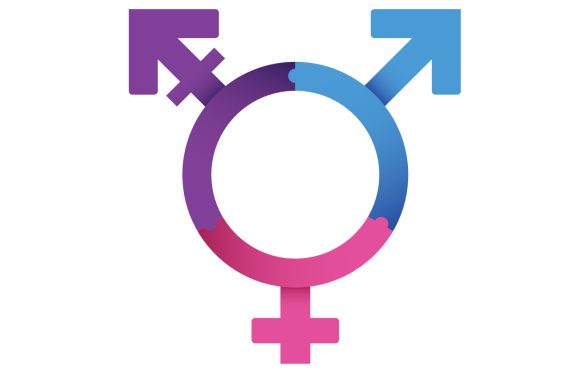
Rape Crisis Scotland (RCS), the organisation which provides support to rape victims, has published new guidance on how it defines a woman – saying that this is anyone who self-identifies as one.
The new document, called Draft Guidance On Protected Spaces For RCS Member Centres, says a woman can also be “someone whose sex at birth was assigned as female and lives as a woman”.
The document, which has taken almost a year to prepare, aims to set out detailed guidance on the provision of women-only spaces within Scotland’s 16 rape crisis centres, along with options for inclusion of trans people.
It is set to reignite a heated debate over the charity’s insistence that trans women should be able to access the centres’ services, a stance that has already split the organisation.
Trans guidance
In the document, RCS – which receives millions in public funding – explains that when it uses the word “female” it is “signifying an ordinary biological perspective on women.”
It states: “This language has been selected as it corresponds to the language of the Equality Act in relation to the protected characteristic of sex.
“When we use ‘woman’, we mean anyone who self-identifies as a woman. We use this language as it corresponds to a gendered perspective.”
Last year, RCS’s CEO Sandy Brindley issued an “unreserved apology” following a series of controversies.
There was anger over the appointment and behaviour of trans woman Mridul Wadhwa as head of the Edinburgh Rape Crisis Centre – something Brindley was not responsible for.
Wadhwa faced criticism over the treatment of staff member Roz Adams, who questioned whether it was appropriate for rape victims not to have a right to specify that they have biological women as support workers.
Adams was awarded £70,000 by an employment tribunal and reviews found Wadhwa was involved in a “heresy hunt” against Adams in what was described as a “spurious and mishandled disciplinary process”.
Wadhwa stood down in the face of a backlash which has continued with the network’s biggest centre, Glasgow & Clyde Rape Crisis, breaking away from RCS at the end of last year over the charity’s trans inclusion policies.
Campaigners have now criticised RCS’s long-awaited new guidance, with one describing it as “just another set of weasel words allowing men to continue using the service.”
Former child protection officer Jane McLenachan, of women’s rights campaign group the Evidence-Based Social Work Alliance, said: “Rape Crisis Scotland continue justifying their belief gender ideology is more important than biological sex.
“Rape Crisis centres were set up to support women who have experienced violent assault and rape by men. Victims shouldn’t have to work out this nonsensical definition of female and women before accessing services. Clear words such as ‘men who identify as transgender’ should be used instead of the obfuscated language RCS has adopted.”
And Carolyn Brown, of campaign group Scottish Professionals Advising On Gender (ScotPAG), said: “Absolutely no lessons have been learned here despite the furore and controversy which has split the organisation, which was started specifically to protect women against sexual violence by men.
“Weasel words are being used to deliberately obfuscate the continued inclusion of men self-identifying as trans women in spaces where already traumatised rape victims have gone to seek help over men’s violence. Sex and gender are quite different. Gender is a social construct and changes as society changes. Sex is a biological reality which cannot be changed.
“The construct that a safe and effective environment can be achieved while sex and gender is confused is simply a lie which increases risk and psychological harm for women and children.”
Guidance is ‘confusing’
Brown said the guidance was full of “misleading words to conceal the fact Rape Crisis Scotland will continue putting men in spaces alongside traumatised women desperate for support following rape”.
The RCS policy states: “It is not our role as a service provider to legislate on the sex or gender of individuals seeking support after rape or sexual abuse.
“It is however our duty to ensure that anyone accessing services is able to make an informed choice about the services they receive.”
Brown said: “The fact is that many women who have suffered rape and sexual assault by a man simply do not want to sit and share what has happened to them with a man who identifies as a woman, and they should have that right.”
Scottish Conservative deputy leader Rachael Hamilton MSP said: “This guidance is confusing and not fit for purpose. It certainly doesn’t do much to address the concerns of women that the right to single-sex spaces will be protected at all times.
“The Equality Act is crystal clear that exemptions can be applied fairly and reasonably, yet this guidance doesn’t offer enough protections to vulnerable women who are concerned that biological men may seek to access female-only spaces.
“It should be simple and straightforward to give women the certainty we deserve, but the SNP just doesn’t get it. They are still completely unaware of which rape crisis centres offer female-only spaces.”
Brindley said: “We are committed to ensuring that anyone who needs support can access it in a way which feels safe and right for them.
“Local rape crisis centres are independent organisations overseen by their own governing bodies, who are responsible for employing staff and the operation of their services. RCS do not employ staff in local centres.
“We are working with member centres to develop a shared approach, so that no matter where in Scotland someone lives, they know what they can expect when they reach out for support from what survivors describe as a lifesaving service.”

Enjoy the convenience of having The Sunday Post delivered as a digital ePaper straight to your smartphone, tablet or computer.
Subscribe for only £5.49 a month and enjoy all the benefits of the printed paper as a digital replica.
Subscribe